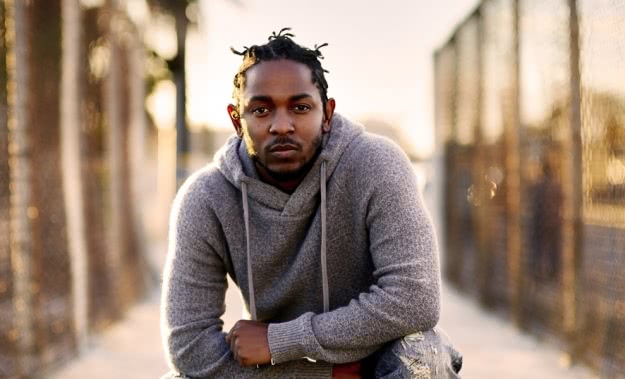Reviewed on Wednesday March 23
Kendrick Lamar is a significant artist. That’s not an understatement: that’s merely how you find yourself speaking after you’ve spent any time in the man’s presence. Things simplify themselves. “I was there,” you say afterwards. “I saw that.”
His show began in silence – or onstage silence at least. The crowd went berserk, heaping their screams upon the 28-year-old rapper the way audiences heap actors with roses at a premiere. He didn’t say a thing. He paced a little; regarded us all. It was almost intimidating, an odd kind of judgement.
But the key to Lamar’s music is a lack of judgement, and as soon as his ridiculously tight backing band kicked into gear, nothing but understanding emanated from the stage. No matter that the man rapped about the hardships facing African-Americans to a predominantly Caucasian audience. “This music don’t just represent me,” he said at one point. “This music if for y’all.”
It wasn’t just an empty statement either. The beaming gang of teenage boys who howled “complexion don’t mean a thing” as the plainly attired rapper barked out the same words from the stage – these boys became complicit, Lamar’s associates rather than his audience.
Everything about the show was unforced. Even when Lamar ordered the lights to be dimmed and the audience to pull out their phones – surely one of the most gimmicky of all modern performer demands – the act took on an air of contemporary spirituality. “This one’s for Phife Dawg,” Lamar insisted, encouraging the audience to chant the name of A Tribe Called Quest’s very recently departed rapper before diving into a bare-knuckle version of ‘Alright’. It wasn’t just a flashy spectacle. It was a vigil.
And yet the gig’s true highlight occurred within the hours after it had wrapped up, as the audience trudged home. Despite the tremendous differences in age, and attire, and attitude, there was true unity between the disseminated crowd. A spontaneous rap battle filled a train. People were unafraid to make eye contact with strangers, searching deeply into each other’s eyes. And mumbled cries of “we gon’ be alright” broke out like spot fires. That’s the thing: Kendrick Lamar’s songs are so powerful, sometimes they sing themselves.

































